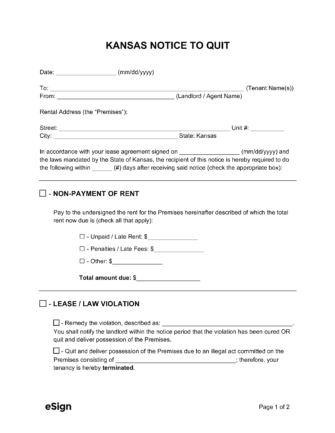
A Kansas eviction notice informs tenants they must leave the property or an eviction lawsuit may be filed against them . Depending on the reason for the notice, the tenant will have between three and thirty days to move out or fix their lease violation. The landlord must also complete the certificate of service section to show they delivered the notice properly.
A Kansas eviction notice informs tenants they must leave the property or an eviction lawsuit may be filed against them . Depending on the reason for the notice, the tenant will have between three and thirty days to move out or fix their lease violation. The landlord must also complete the certificate of service section to show they delivered the notice properly.
PDF Download
A Kansas eviction notice informs tenants they must leave the property or an eviction lawsuit may be filed against them . Depending on the reason for the notice, the tenant will have between three and thirty days to move out or fix their lease violation. The landlord must also complete the certificate of service section to show they delivered the notice properly.
4.7 | 7 Ratings Downloads: 1,239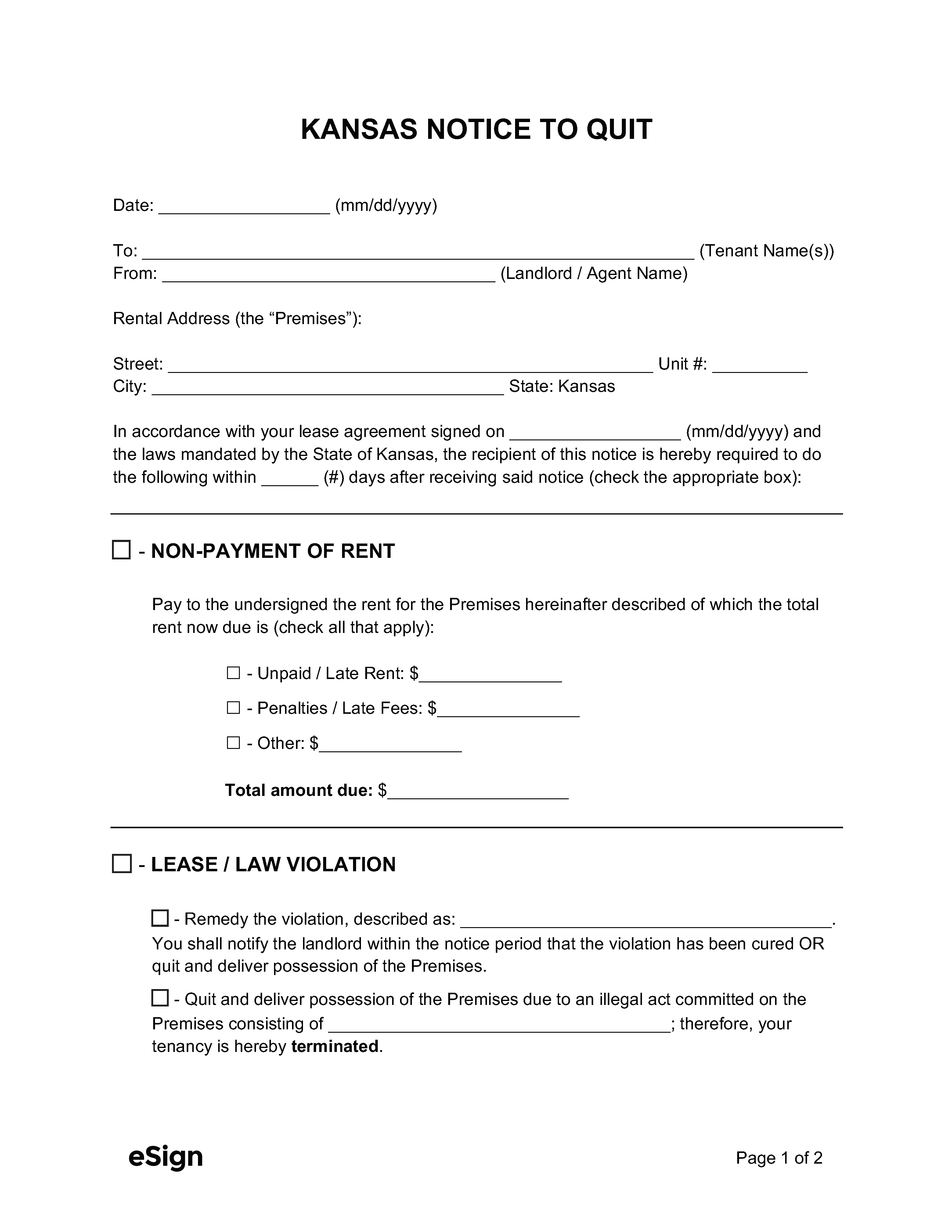

Landlords must first draft a notice stating the reason for the lease termination and the number of days the tenant has to fix the problem or vacate the premises.
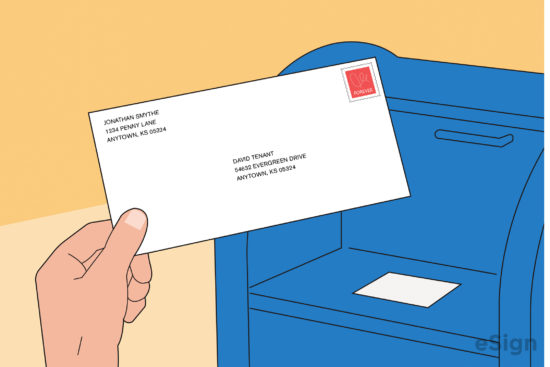
A copy of the completed notice must be delivered to the tenant by mail, hand, or posting on the premises. Depending on the reason for the eviction, the tenant may be given either 3 or 14 days to remedy the situation.

If the tenant doesn’t fix the issue or move out , the landlord may file an eviction lawsuit with the district court by submitting a Petition for Eviction. A Civil Cover Sheet, an Eviction Summons form , and a filing fee must be included with the petition

Once the landlord’s petition has been processed, the court will schedule an eviction hearing and issue an Eviction Summons stating the date, time, and location of the first eviction hearing.
The landlord must arrange to have the Eviction Summons and a copy of the Petition for Eviction served on the tenant by sheriff, mail, or process server .
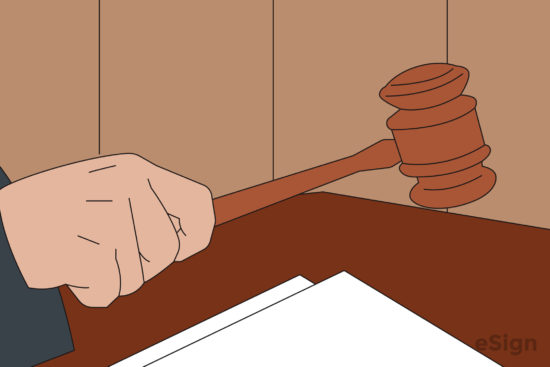
Both the tenant and landlord must appear in court for the eviction hearing. A default judgment will be made in favor of the landlord if the tenant fails to attend.
If the tenant objects to the petition, a formal trial will be scheduled within 14 days of the initial hearing.
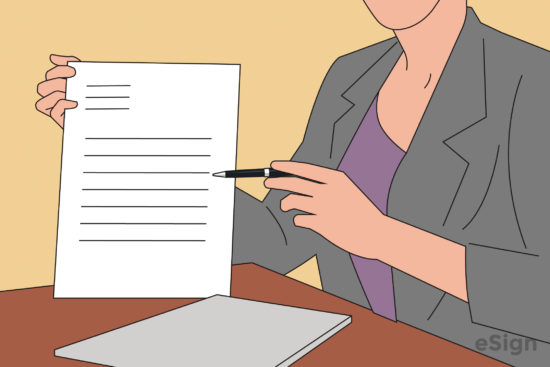
The landlord must attend the eviction trial to present their evidence to the court. To ensure their success, the landlord must have sufficient evidence showing that the tenant is no longer entitled to possession of the premises.
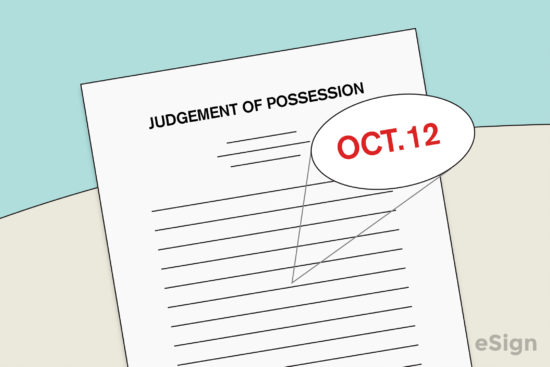
If the landlord wins the eviction trial, a Judgment of Possession will be awarded to the landlord. This document indicates a date by which the tenant will be required to vacate the premises.
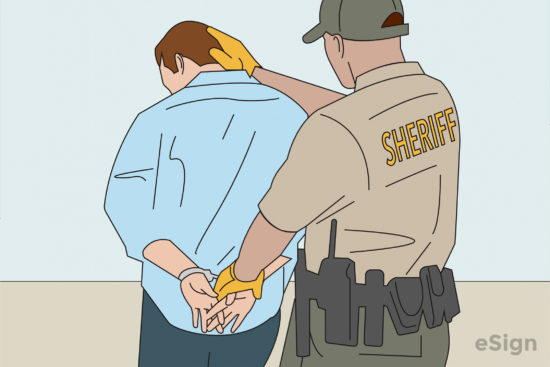
Should the tenant fail to comply with the eviction terms and remain on the property, the landlord may request a Writ of Restitution for Immediate Possession to authorize the sheriff’s office to physically remove the tenant within 14 days.
Forms
Resources